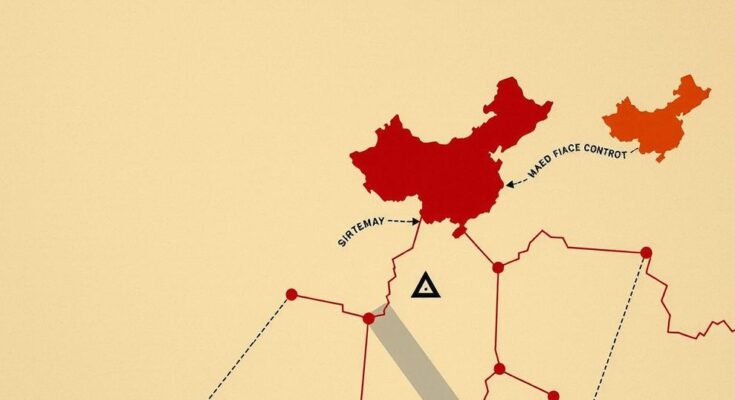Congolese rebels claim to have taken Goma, prompting significant civilian displacement and concerns over regional stability. The M23 group issued a deadline for government troops to surrender, as reports of gunfire emerged amidst power outages in the city. The rapid advances of the rebels underscore the complex crisis affecting eastern Congo.
On Sunday, Congolese rebels announced that they had successfully taken control of Goma, the largest city in the eastern Democratic Republic of Congo, following a rapid military advance. This development has resulted in a mass exodus of civilians and heightened fears of escalating regional conflict. Corneille Nangaa, the leader of the Congo River Alliance, which includes the M23 faction, made the announcement, stating, “We have taken Goma and have ordered soldiers to surrender by 3:00 a.m. local time (0100 GMT).”
Although Reuters was unable to verify the extent of rebel control over the city, reports suggested that M23 forces had made significant progress and were assaulting Goma, the capital of North Kivu province. M23’s swift advances this month have raised alarms about a potential resurgence of violence in the resource-rich area.
As conflict escalated, rebel forces reportedly moved past Munigi, a neighborhood approximately 9 kilometers from the city’s center. Nangaa maintained that Goma was firmly within their grasp, and the rebels instructed government troops to disarm and surrender. Willy Ngoma, another M23 spokesperson, asserted that the rebels had previously extended a 48-hour ultimatum for the army to lay down arms, which had already lapsed.
Following negotiations, the rebels allowed some Congolese military officers to evacuate Goma via boat to Bukavu. There were predictions of an impending rebel entry into the city, prompting officials to prepare for surrender by gathering at a specified stadium. Meanwhile, conflicting reports emerged of sporadic gunfire within Goma as residents experienced a widespread power outage.
This surge in rebel activity and the precarious situation in Goma reflect a complex and volatile political environment in eastern Congo, underscoring the role of armed groups in the region’s ongoing instability. The aftermath of this incident could have far-reaching consequences, not only for the citizens affected but also for the neighboring countries involved in the conflict.
The situation in the Democratic Republic of Congo has been marked by long-standing conflicts, particularly in the eastern regions rich in minerals. The M23 rebel group, which has garnered support from Rwanda, has been involved in military confrontations with government forces. Goma serves as a strategic and economic hub, making control over the city significant for both rebels and the government, and minor territorial gains can have substantial effects on the balance of power within the region.
In conclusion, the capture of Goma by Congolese rebels represents a significant escalation in ongoing hostilities in eastern Congo. As thousands flee amidst gunfire and power outages, the implications of this situation extend beyond military control, threatening to destabilize the region further. The need for international attention and potential intervention is critical in addressing the humanitarian crisis and the potential for a wider conflict.
Original Source: www.hawaiitribune-herald.com




